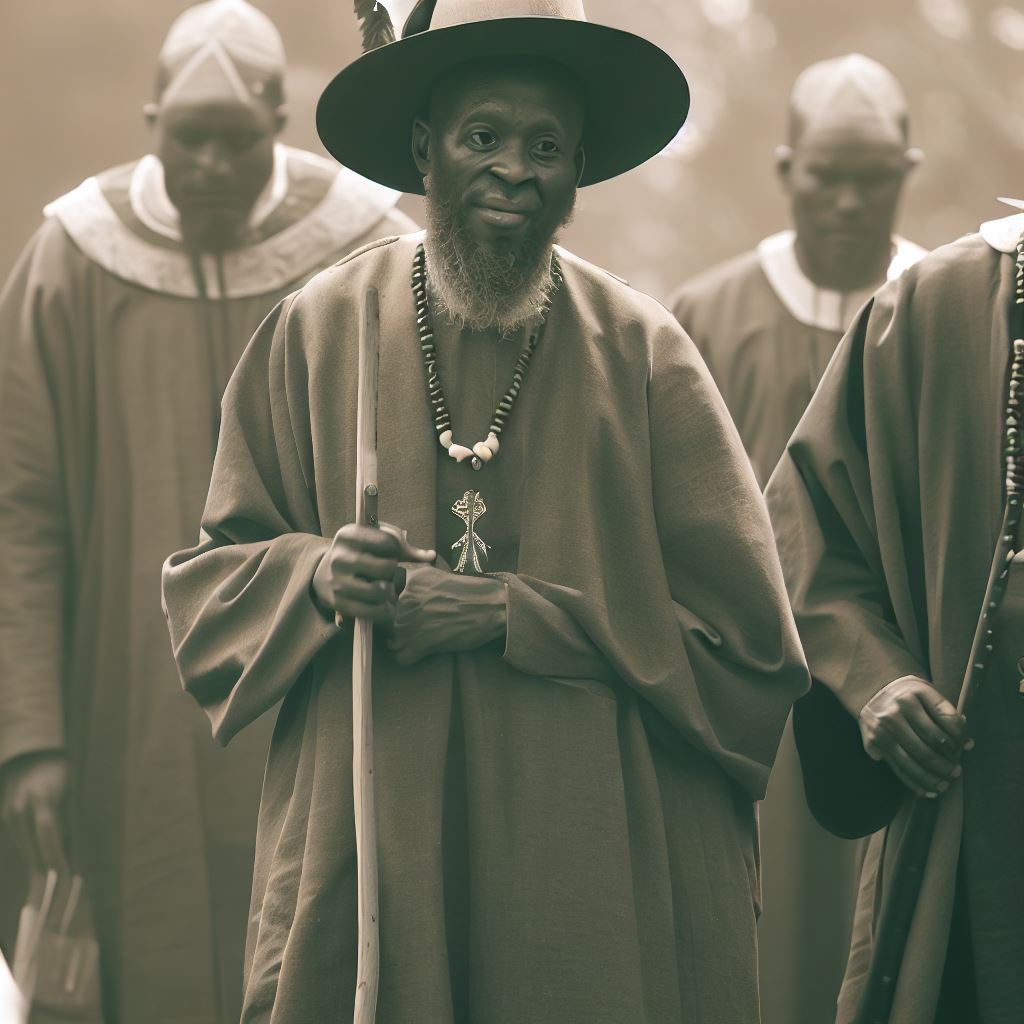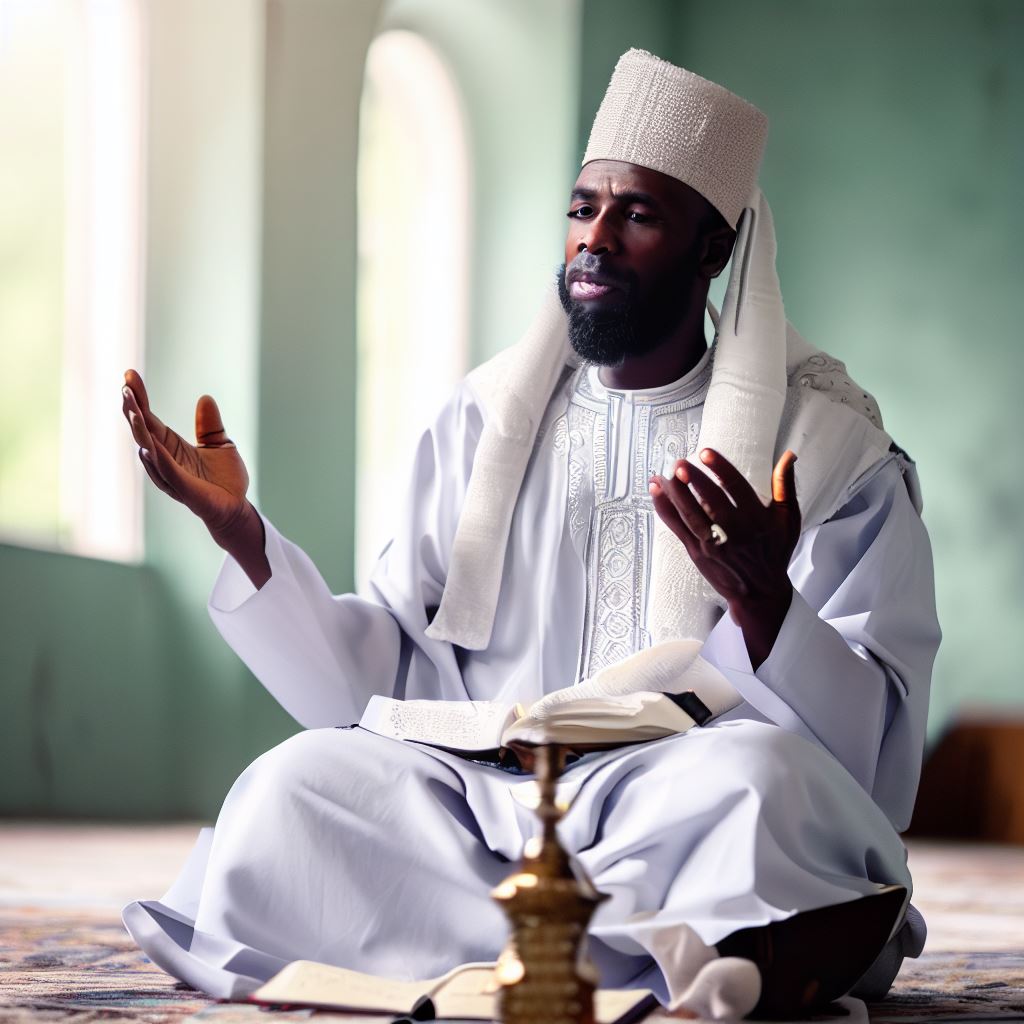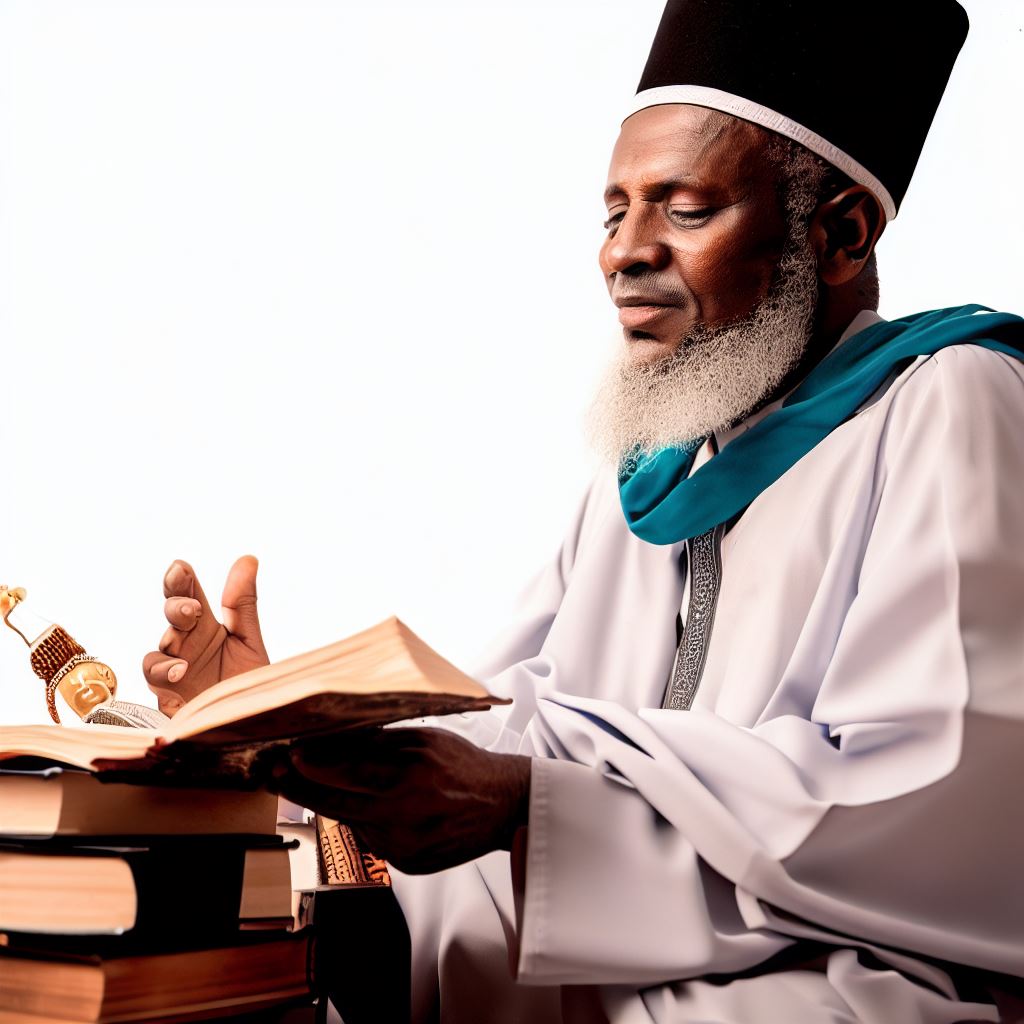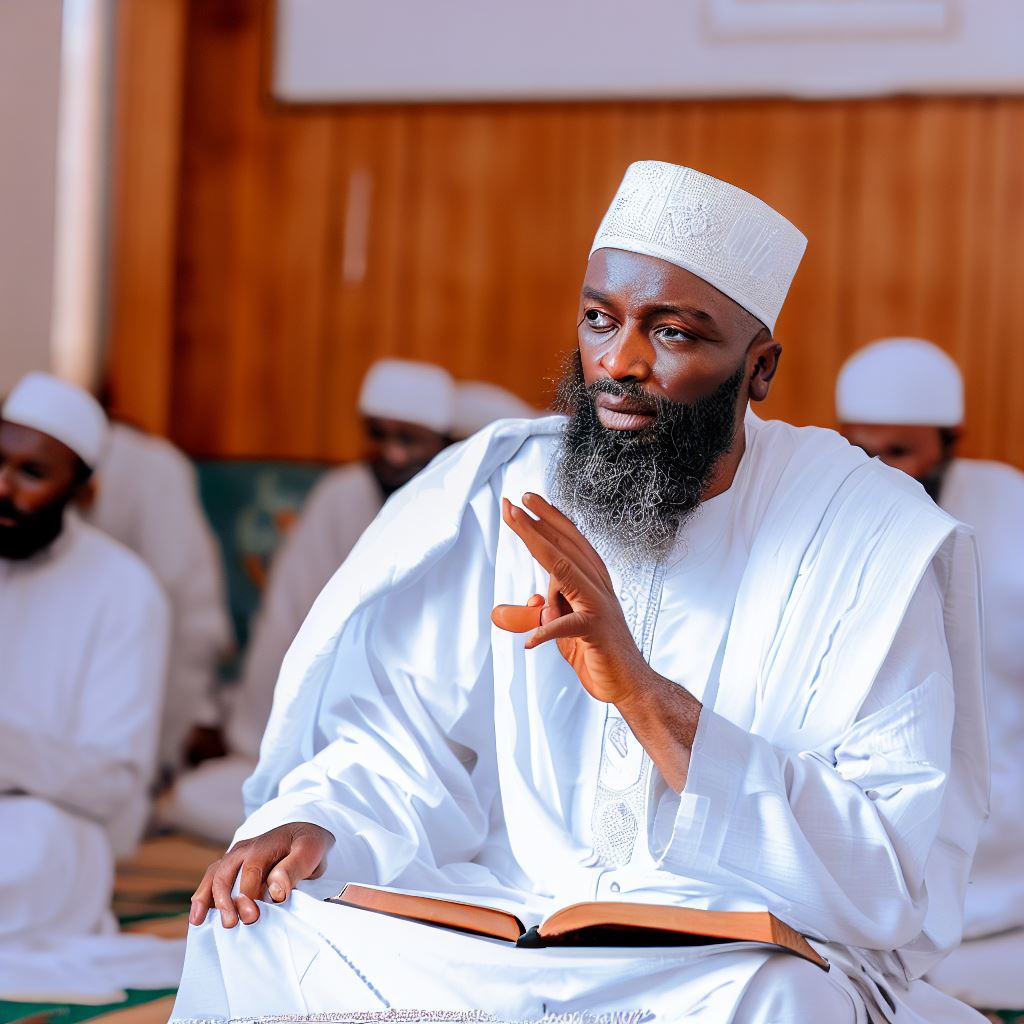Introduction
Welcome to another chapter of our blog series on the clergy profession in Nigeria. In this chapter, we will be delving into the historical perspective of this esteemed profession.
Understanding the historical background of the clergy profession is of utmost importance. It provides us with valuable insights into the development and significance of this profession in Nigeria.
By exploring the historical perspective, we can uncover the roots of the clergy profession in Nigeria, tracing its evolution over time.
This knowledge allows us to appreciate the challenges and achievements faced by clergy members in establishing their role in Nigerian society.
Furthermore, comprehending the historical context helps us recognize the impact of external factors on the clergy profession.
From colonialism to religious reformations, these historical events shape the clergy’s position and influence in Nigerian communities.
Through this exploration, we gain a deeper understanding of the historical, social, and cultural factors that have shaped the clergy profession in Nigeria.
Such understanding helps us appreciate the roles of religious leaders in advocating for justice, peace, and moral guidance in our society.
In essence, the historical perspective provides valuable insights into the development and significance of the clergy profession in Nigeria.
It allows us to comprehend the challenges and achievements of clergy members, recognize external influences, and understand their roles in shaping Nigerian society.
Join us in the upcoming chapters as we delve further into this captivating topic.
The Pre-colonial Era
In Nigeria’s pre-colonial era, traditional religious practices were deeply ingrained in the daily lives of the people.
These practices varied across different ethnic groups, reflecting the diverse cultural landscape of the country.
Traditional religious practices and leadership in Nigeria
In the pre-colonial era, Nigeria was characterized by diverse traditional religious practices. These practices were deeply rooted in the cultures and beliefs of various ethnic groups across the country.
Traditional religious practices consisted of a myriad of rituals, ceremonies, and beliefs associated with ancestral worship, nature spirits, and deities.
Leadership within these practices was often held by religious leaders who possessed knowledge of the spiritual realm and were entrusted with the responsibility of guiding and addressing the religious needs of their respective communities.
Role of religious leaders within the community
Religious leaders played a crucial role in the pre-colonial Nigerian society. They served as intermediaries between the people and the spiritual realm, offering guidance, prayers, and rituals to meet the religious needs of the community.
These religious leaders played a vital role in the pre-colonial Nigerian society.
They served as intermediaries between the people and the spiritual realm, performing rituals, offering prayers, and conducting ceremonies to appease the gods, seek their favor, and ensure the well-being of the community.
Their roles extended beyond religious matters, as they also provided counsel and settled disputes within the community.
With the advent of Islam and Christianity in Nigeria, the pre-colonial religious landscape underwent significant changes.
Islamic scholars and Christian missionaries introduced their religions to different parts of the country, gradually gaining influence among the people.
Influence of Islam and Christianity on pre-colonial religious practices
Islam and Christianity gradually gained influence in Nigeria during the pre-colonial era.
Muslim scholars and Christian missionaries introduced their religions, leading to the blending of traditional practices with Islamic and Christian beliefs.
The impact of Islam and Christianity on pre-colonial religious practices was significant.
While some Nigerians fully embraced these foreign religions, others blended their traditional beliefs with Islamic or Christian elements, creating a syncretic form of worship.
Islamic practices, such as daily prayers, fasting during Ramadan, and pilgrimage to Mecca, began to coexist with traditional religious rituals.
Similarly, Christian missionaries introduced the Bible, church services, and sacraments, which were integrated into existing cultural practices.
This blending of traditions resulted in a unique religious landscape in Nigeria, characterized by a fusion of traditional, Islamic, and Christian elements.
The influence of Islam and Christianity also led to the emergence of new religious leaders.
Muslim imams and Christian pastors assumed leadership roles within their respective communities, providing spiritual guidance, organizing religious activities, and maintaining social cohesion.
Nigeria’s pre-colonial era was marked by a rich tapestry of traditional religious practices, with religious leaders playing a pivotal role in meeting the spiritual needs of their communities.
The influence of Islam and Christianity brought about significant changes, leading to the fusion of traditional practices with Islamic and Christian beliefs.
This blending of traditions created a unique religious landscape in Nigeria, characterized by the coexistence and synthesis of various religious elements.
Read: Supporting Youth: The Role of Nigeria’s Clergy
The Arrival of European Missionaries
Introduction of Christianity to Nigeria during the colonial period
When European missionaries arrived in Nigeria during the colonial period, they introduced Christianity to the country. This marked the beginning of a significant shift in the religious landscape of Nigeria.
Establishment of mission schools and churches
The missionaries not only brought their faith but also established mission schools and churches. These institutions played a crucial role in spreading Christianity and providing education to the local population.
Conversion of some Nigerians to Christianity
As a result of the missionary activities, some Nigerians converted to Christianity. They were attracted to the teachings and saw the benefits of embracing this new religion.
Christianity provided them with a sense of hope and opened up opportunities for social and economic advancement.
Early roles of Nigerian priests within the missionary structure
During this early period, Nigerian priests played important roles within the missionary structure. They served as intermediaries between the European missionaries and the local population.
They helped in translating religious texts, facilitating communication, and bridging the cultural divide.
Moreover, Nigerian priests played a vital role in nurturing and expanding the Christian faith within their communities.
They became spiritual leaders, guiding their fellow Nigerians and helping them navigate the complexities of their newfound religion.
Over time, the clergy profession in Nigeria evolved. Nigerian priests began to take on more significant leadership roles within the church.
They were ordained as bishops, pastors, and other high-ranking positions.
Their influence extended beyond the church, as they became prominent figures in society. Nigerian priests started advocating for social justice, education, and healthcare for their congregations and communities.
The role of the clergy in Nigeria also expanded beyond religious matters. They became active participants in politics, advocating for the rights of Nigerians and promoting democratic values.
Although the clergy profession in Nigeria has had its challenges, such as corruption scandals and divisions within different denominations, it continues to play a crucial role in the country’s religious and social fabric.
The Nigerian clergy has been instrumental in fostering peace, promoting interfaith dialogue, and providing humanitarian assistance in times of crisis.
In summary, the arrival of European missionaries in Nigeria introduced Christianity to the country, leading to the establishment of mission schools and churches.
The conversion of some Nigerians to Christianity and the early roles of Nigerian priests within the missionary structure shaped the clergy profession in Nigeria.
The clergy has since evolved, taking on significant leadership roles, advocating for social justice, and impacting both religious and political spheres of the country.
Read: Inspiration from the Pulpit: Famous Nigerian Clergy Quotes
The Indigenous Clergy Movement
The Indigenous Clergy Movement in Nigeria refers to the rise of Nigerian-led churches and denominations, the founding of indigenous theological institutions, the rise of influential Nigerian clergy figures, and efforts towards decolonization and self-governance within religious institutions.
Emergence of Nigerian-led churches and denominations
Nigerian-led churches and denominations emerged as a response to colonial dominance in religious matters.
Indigenous leaders began to challenge the authority of foreign missionaries and establish their own churches.
This movement gave Nigerians a sense of ownership and control over their religious practices.
These churches and denominations played a crucial role in shaping the religious landscape of Nigeria.
Founding of indigenous theological institutions
As the Indigenous Clergy Movement gained momentum, the need for indigenous theological training became evident.
Nigerians established their own theological institutions to educate and train future clergy. These institutions provided theological education in a way that was relevant to the Nigerian context.
They aimed to equip indigenous clergy with the knowledge and skills to lead their own churches.
Rise of influential Nigerian clergy figures
The Indigenous Clergy Movement led to the rise of influential Nigerian clergy figures who became leaders and role models.
These figures, such as pastors, bishops, and prophets, gained popularity and built large followings. Their influence extended beyond religious matters and encompassed areas like politics and social issues.
They played a significant role in shaping the direction of the country and influencing public opinion.
Efforts towards decolonization and self-governance within religious institutions
The Indigenous Clergy Movement also sparked efforts towards decolonization and self-governance within religious institutions.
Nigerian clergy leaders demanded greater control over decision-making processes and administration of their churches.
These efforts aimed to break free from the influence and control of foreign religious hierarchies. Nigerian-led churches and denominations sought to assert their autonomy and independence.
In fact, the Indigenous Clergy Movement in Nigeria has had a profound impact on the clergy profession in the country.
It has led to the emergence of Nigerian-led churches and denominations, the founding of indigenous theological institutions, the rise of influential Nigerian clergy figures, and efforts towards decolonization and self-governance within religious institutions.
This movement has empowered Nigerians to take ownership of their religious practices and has contributed to the overall development of the country.
Read: Understanding Conflicts and Resolutions in Nigeria’s Clergy
The Role of the Clergy in Nigeria’s Independence Struggle
The clergy played a significant role in Nigeria’s struggle for independence from colonial rule. They served as mobilizers, influencers, and advocates for political change.
Mobilization of Churches and Clergy during the Independence Movement
- The clergy actively mobilized churches and religious communities to support the quest for independence.
- Through sermons and teachings, they emphasized the importance of sovereignty and self-governance.
- Religious gatherings became platforms for discussing political issues and fostering national consciousness.
- Clergy members organized prayer sessions and fasting activities to seek divine intervention in the struggle.
- They also played a crucial role in disseminating information and coordinating grassroots movements.
Political Involvement and Influence of Religious Leaders
- Religious leaders became involved in political activities, advocating for independence and political reform.
- They established close relationships with nationalist leaders, providing guidance and spiritual counsel.
- Clergy members served as intermediaries between the colonial authorities and nationalist groups.
- They used their influence to promote unity among diverse ethnic and religious groups.
- Religious leaders also participated in conferences and meetings that led to the formation of political parties.
Controversies and Challenges Faced by the Clergy during this Period
- The involvement of religious leaders in politics sparked controversy within the clergy and among their followers.
- Some religious institutions disapproved of political activities and considered them distractions from their core mission.
- Clergy members faced persecution and arrest by colonial authorities, who saw their activities as seditious.
- Internal conflicts arose as different religious leaders pursued different strategies for achieving independence.
- Religious leaders encountered challenges in managing the diverse expectations and aspirations of their followers.
In short, the clergy played a crucial role in Nigeria’s struggle for independence. They mobilized churches, participated in political activities, and influenced public opinion.
Despite controversies and challenges, their contributions were instrumental in achieving the country’s independence from colonial rule.
Read: Celebrating Diversity: Different Sects in Nigeria’s Clergy

The Influence of Pentecostalism
Introduction of Pentecostalism in Nigeria
Pentecostalism was introduced to Nigeria in the early 20th century, mainly through the efforts of foreign missionaries.
Pentecostalism, a dynamic form of Christianity that emphasizes the Holy Spirit’s power and presence, has had a significant impact on the clergy profession in Nigeria.
Introduced to the country in the early 20th century by foreign missionaries, Pentecostalism has since grown and become one of the most popular religious movements in the country.
Growth and popularity of Pentecostal churches
Over the years, Pentecostal churches in Nigeria have experienced tremendous growth and gained immense popularity.
The growth and popularity of Pentecostal churches in Nigeria have been remarkable. From small gatherings, these churches have grown into mega-cathedrals, attracting thousands of believers across the country.
The charismatic nature of Pentecostal worship, which includes speaking in tongues and healing services, has appealed to many Nigerians seeking a more personal and experiential form of spirituality.
Changes in the clergy profession due to Pentecostal influence
The influence of Pentecostalism has brought about significant changes in the clergy profession in Nigeria.
As Pentecostalism gained influence, it brought about significant changes in the clergy profession.
Traditional religious institutions were challenged by the rise of charismatic preachers, who emphasized direct encounters with the Holy Spirit and placed less emphasis on the hierarchical structures of the church.
This shift led to a reimagining of the clergy profession, with an increased focus on individual experience and spiritual gifts.
Rise of charismatic preachers and televangelism
One of the most visible changes in the clergy profession has been the rise of charismatic preachers and the phenomenon of televangelism.
Charismatic preachers, known for their dynamic preaching styles and ability to perform miracles, have attracted large followings and become influential figures in Nigerian society.
Publish Your Professional Profile, Business or Brand
Showcase your expertise, gain trust, and boost visibility instantly on Professions.ng.
Publish NowWith the advent of television and the internet, these preachers have utilized media platforms to reach even larger audiences, expanding their influence beyond physical church spaces.
Televangelism, made possible by advancements in technology, has provided a new medium for Pentecostal preachers to spread their message and attract followers.
Through televised sermons, these preachers can reach millions of people across Nigeria and beyond, shaping religious discourse and influencing public opinion on various social and political issues.
The popularity of televangelism has given rise to a new breed of celebrity preachers, who often amass significant wealth and influence through their media ministries.
In general, the influence of Pentecostalism on the clergy profession in Nigeria cannot be overstated.
The introduction of Pentecostalism has led to the growth and popularity of Pentecostal churches, as well as significant changes in the clergy profession.
Charismatic preachers and televangelism have emerged as prominent features of Nigerian religious life, shaping the way people experience and practice their faith.
As Pentecostalism continues to evolve and adapt to new cultural contexts, it is likely to shape the clergy profession even further in the future.
Delve into the Subject: Nigeria’s Clergy in the Digital Age: An Exploration
Challenges and Controversies in the Contemporary Clergy Profession
The clergy profession in Nigeria has faced several challenges and controversies in recent times, which have greatly impacted its reputation and public trust.
These challenges include financial scandals, the rise of the prosperity gospel, criticism of clergy involvement in politics, and efforts towards restoration and public trust.
Financial Scandals Involving Nigerian Clergy
- Several Nigerian clergy members have been involved in financial scandals that have raised concerns.
- These scandals range from misappropriation of church funds to extravagant lifestyles and unexplained wealth.
- Such actions have greatly eroded public trust in the clergy and have made them subject to criticism and scrutiny.
- Investigations and legal actions have been initiated against some clergy members involved in these financial scandals.
- The exposure of these scandals has created controversies within the profession and damaged the reputation of the clergy in Nigeria.
Rise of Prosperity Gospel and Its Impact on the Profession
- The popularity and influence of the prosperity gospel movement have grown significantly in Nigeria.
- Clergy members promoting this message emphasize material wealth and prosperity as signs of God’s favor.
- However, this has led to controversies and criticism within the society and among other religious groups.
- The emphasis on material wealth in the profession has raised questions about the true essence of the clergy’s calling.
- Additionally, the prosperity gospel has been seen as promoting individualism and neglecting social justice and community service.
Criticisms of Clergy Involvement in Politics
- Another controversy surrounding the clergy profession in Nigeria is the involvement of clergy members in politics.
- While some argue that it is a necessary step towards societal transformation, critics question the morality and impartiality of clergy engaging in politics.
- Accusations of partisan support, manipulation, and exploitation of their religious influence have been leveled against clergy involved in politics.
- Such controversies have further eroded public trust in the clergy and have strained their relationship with the political class.
- Critics argue that the clergy should focus solely on spiritual matters and refrain from active participation in politics.
Efforts towards Addressing These Challenges and Restoring Public Trust
- Recognizing the need to address these challenges, some influential Nigerian clergy have taken steps to restore public trust.
- Internal reforms and accountability mechanisms have been proposed and implemented within religious organizations.
- Efforts have been made to promote transparency and financial accountability, ensuring proper use of church funds.
- Educational programs and workshops have been organized to promote ethical conduct among the clergy.
- Interfaith dialogue has also been encouraged to address controversies surrounding the prosperity gospel and clergy involvement in politics.
In a nutshell, the contemporary clergy profession in Nigeria faces significant challenges and controversies.
Financial scandals, the rise of the prosperity gospel, controversies surrounding clergy involvement in politics have all affected the profession’s reputation and public trust.
Efforts towards addressing these challenges include internal reforms, accountability mechanisms, promoting transparency, and ethical conduct.
Restoring public trust requires continuous efforts and dialogue to ensure the clergy’s integrity and preserve their role as spiritual leaders in society.
Conclusion
Understanding the historical development of the clergy profession in Nigeria is crucial for gaining a comprehensive view.
The recap of its historical journey has shown how the profession has evolved over time. It has highlighted the struggles and achievements that have shaped the clergy’s role in Nigerian society.
By examining the historical perspective, we can appreciate the challenges that clergymen faced in the past and how they overcame them.
It allows us to understand the importance of their role in shaping the moral fabric of the nation.
Additionally, recognizing the historical context helps us to assess the current state of the clergy profession in Nigeria.
We can identify areas that need improvement and devise strategies to address them. Moreover, understanding the past will better prepare us for the future prospects of the clergy profession.
In light of this, it is crucial to continue supporting the development of the clergy profession.
Nigerian society can benefit greatly from a strong and dedicated clergy that provides spiritual guidance and fosters moral values.
As we move forward, it is essential to remember the rich history that has brought us here. History serves as a teacher, and by learning from the past, we can ensure a brighter future for Nigeria’s clergy profession.
Appreciating the historical perspective of the clergy profession in Nigeria is crucial for a comprehensive understanding.
It provides us with insights into their challenges, achievements, and the importance of their role in society.
By embracing this knowledge, we can work towards a stronger, more enlightened clergy profession for the future.




